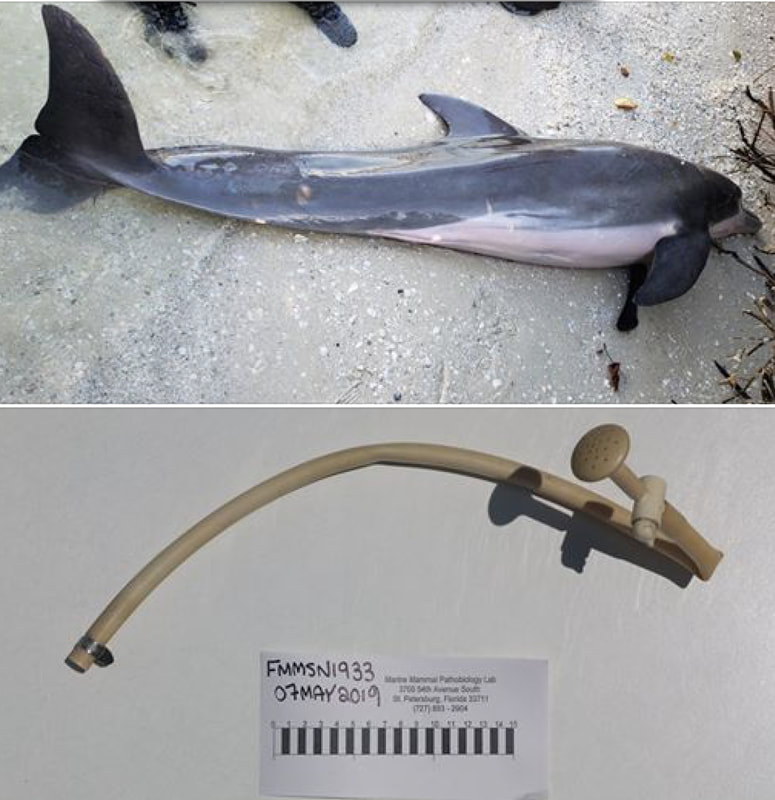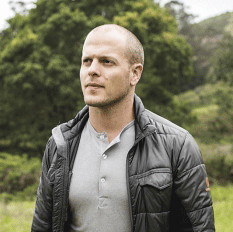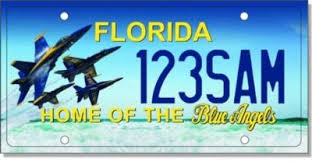 Florida officials discovered a two-foot plastic shower hose in the stomach of a seven-foot-long dead male dolphin that washed ashore earlier this month, CNN reports. The Florida Fish and Wildlife Commission announced on May 17 that the dolphin was found at Fort Meyers Beach a week before. Biologists performed an autopsy, which revealed the hose and other plastic parts in the dolphin's stomach and esophagus. "Your actions can make a difference - secure and properly dispose of trash, take part in coastal cleanups and share information on how to reduce marine debris with others," the agency wrote in a Facebook post. The dolphin is the second stranded one that officials have found at the beach in a month. A months-old dolphin was found on April 23 with a piece of balloon and two plastic bags in its stomach. Biologists determined that it was in poor health and decided to "humanely euthanize" it. "This finding highlights the need to reduce single use plastic and to not release balloons into the environment," the commission said at the time. More than 700 species of marine animals come across litter, much of which is plastic, according to the University of Plymouth. An estimated 12 million tons of plastic waste enter the ocean every year, the institution further notes. Several states have made an effort to limit the use of plastic in response. In 2015, Hawaii became the first to ban plastic bags in all of its counties. California and New York have since followed suit with similar legislation. For more info, click here
0 Comments
 The Chronicle of Philanthropy reports that best-selling author, podcaster, and investor, Tim Ferriss, who is now 42, disclosed that his decision to devote his philanthropy to research into psychedelic drugs is built on a solid foundation of peer-reviewed science. "I’ve spent hundreds of hours interacting with researchers to get a better understanding of the science," he says. It is also very personal. Ferriss’s best friend from childhood died of a fentanyl overdose and his aunt, after injuring her shoulder, became addicted to Percocet and alcohol and died last year. Ferriss himself struggled with depression and anxiety as a college student at Princeton. He tried "magic mushrooms," which contain psilocybin, and found relief. "I was able to finally see things clearly," he says, "to appreciate all of the incredible chance blessings that I experienced in my life." So, Ferriss decided to help fund research at John Hopkins to see if psilocybin-assisted therapy could treat opioid addiction. Ferriss is quick to caution that no one should experiment with illegal drugs under uncontrolled circumstances. But like many, if not most, of the donors to psychedelic science, his passion is driven both by the head and the heart. Usona founder Bill Linton, Cody Swift of the Riverstyx Foundation, and David Bronner, who leads Dr. Bronner’s, which makes organic personal-care products, have all experienced or seen up close the healing potential of psychedelics. Donors are also motivated because, they say, conventional treatments for the pain caused by PTSD, depression, anxiety, and addiction often fall short. Drug overdoses killed more than 70,000 Americans in 2017, which is more than the number who died during the entire Vietnam War. "These compounds are by no means a panacea," Ferriss says. "But they show tremendous promise for serious conditions that currently have few or no effective treatments." Ferriss has formed a foundation and pledged $2 million of his own money to fund psychedelic science. "Having done a few years of due diligence," he adds, "I’ve decided to push all my chips in." Other major donors include David Bronner and his family, which owns Dr. Bronner’s, a company that makes organic personal-care products; Bill Linton, the founder and CEO of life sciences company Promega, who started a nonprofit to secure government approval for psilocybin to alleviate depression; Rebekah Mercer, whose concern focuses on veterans with PTSD; and the children of the late Richard Rockefeller, former chair of the Rockefeller Brothers Fund, who was a passionate advocate for the research. Others supporting the research include the foundation of Facebook co-founder Dustin Moskovitz and his wife, Cari Tuna; the foundation of Nick Pritzker, a venture capitalist and the former president of the Hyatt hotel chain, and his wife, Susan; George Sarlo, a Holocaust survivor and founder of an investment firm; the entrepreneur Elon Musk; Groupon co-founder Andrew Mason; and an anonymous Bitcoin millionaire known only as Pine, who says his philanthropy was inspired by a drug trip. It’s all the more remarkable because the drugs being studied — primarily psilocybin, which comes from so-called magic mushrooms, and MDMA, the active ingredient in street drugs known Ecstasy or Molly — are not only illegal but designated, along with heroin and fentanyl, as Schedule 1 drugs by the Drug Enforcement Administration, a classification reserved for substances thought to have a high potential for abuse and no currently accepted medical use. For more info on studying psychedelics, click here. Ten per cent of the oxygen we breathe comes from just one kind of bacteria in the ocean. Now laboratory tests have shown that these bacteria are susceptible to plastic pollution, according to a study published in Communications Biology.
"We found that exposure to chemicals leaching from plastic pollution interfered with the growth, photosynthesis and oxygen production of Prochlorococcus, the ocean's most abundant photosynthetic bacteria," says lead author and Macquarie University researcher Dr Sasha Tetu. "Now we'd like to explore if plastic pollution is having the same impact on these microbes in the ocean." Plastic pollution has been estimated to cause more than US$13 billion in economic damage to marine ecosystems each year, and the problem is only getting worse with marine plastic pollution estimated to outweigh fish by 2050. "This pollution can leach a variety of chemical additives into marine environments, but unlike the threats posed by animals ingesting or getting entangled in plastic debris the threat these leachates pose to marine life has received relatively little attention," says Dr Lisa Moore, a co-author on the paper. In the first study of its kind, the researchers looked at the effects these chemicals have on the smallest life in our oceans, photosynthetic marine bacteria. For more, click here.  HB 505, entitled: “Transportation Credentials”, sponsored by Jamie Grant, R-Tampa (as well as Jackie Toledo, R-Tampa, Melony Bell, R-Fort Meade, Chuck Clemons, R-Newberry, Delores Hogan Johnson, D-Fort Pierce, Ralph Massullo, R-Lecanto, and Jayer Williamson, R-Pace as well as the State Affairs Committee, Transportation & Tourism Appropriations Subcommittee and the Transportation & Infrastructure Subcommittee); and SB 1104, entitled "License Plates" sponsored by Aaron Bran, R-Jacksonville and Doug Broxson R-Pensacola (as well as the Infrastructure and Security Committee), designated the 'train' bills for all things specialty license plate, both came to a screeching halt, despite having more than 90 registered lobbyists pushing the bills.  The 'Blue Angels' specialty license plate managed to jump off the train and soar above onto SB 620, after the bill had passed all of its committees, sponsored by Doug Broxson, R-Pensacola (and the Rules and Military and Veterans Affairs and Space Committees). The Blue Angels is the first specialty license plate to be approved in Florida for many, many years and not for want of trying.  The 2018 license plate bill in the House (HB 505) was once again sponsored by James ‘JW’ Grant, R- Tampa, a 36 year old entrepreneur who attended Auburn University and Stetson College of Law. He is a member of Ducks Unlimited, Tampa Bay 100 Chapter, General H. Norman Schwarzkopf Children's Home Sporting Clays Classic, and the National Rifle Association. It has been a number of years now that Rep Grant has took the helm to lead the charge for new specialty plate rules and new specialty plates and failed. Among the over 30 proposed license plates that were contained in HB 505 and SB 1104 were plates that have been trying to gain legislative approval for over five years. Lobbyists for Orlando City Soccer Club, Coastal Conservation Association, Lauren's Kids, the Independent Colleges & Universities, Moffitt Cancer Center, Rotary's Camps, Tampa Bay Lightning, Orlando Magic, Florida Off Road Foundation, Donate Life, American Legion, Veteran's of Foreign Wars, Ducks Unlimited, Florida Association of Healthy Start Coalitions, Florida Beekeepers Research Foundation, Dan Marino Foundation, Inc., New College Foundation, Broward County, Florida Municipal Electric Association, Florida Tax Collectors, Inc. and numerous tech companies all lined up on either side of the bill with conflicting opinions on language, as well as the Department of Highway Safety and Motor Vehicles own paid lobbyist, Kevin Jacobs. In 2008, a year when 4 more specialty plates were approved, (Florida Tennis, Lighthouse Association, In God We Trust and Horse Country) the Florida Legislature imposed a moratorium on the creation of new plates, which was extended during the 2014 Legislative Session to July 1, 2016. This bill also revised the requirements for requesting the approval of a specialty license plate by replacing the scientific sample survey of 30,000 Florida motor vehicle owners and an application fee of $60,000.00 with a pre-sale voucher, requiring the pre-sale of 1,000 vouchers at $30.00, after legislative approval. During the moratorium, the Legislature proceeded to create 17 more specialty license plates, 15 of which were able to complete the pre-sell process. The last 4 plates to be created by the legislature became effective on 10/1/2014: Fallen Law Enforcement Officers, Florida Sheriff's Association, Kaiser University and Moffitt Cancer Center. In 2018 there were a total of 122 specialty license plates. Fallen Law Enforcement Officers (ranked 52) sold 9,414, Florida Sheriff's Association (ranked 68) sold 5,356, Moffitt Cancer Center (ranked 103) sold 1,374 and Kaiser University (ranked 116) sold 276. 1,561,215 specialty license plates were sold in 2018 - compared to 1,521,472 in 2017. American Red Cross, Clearwater Christian College, Donate Organs, Pass it On, Hispanic Achievers and St. John's River specialty license plates have been de-listed for lack of sales in 2015/2016. Support Soccer has been de-listed in 2018 due to the sponsoring charity dissolving. Protect Wild Dolphins, Protect Florida Whales, Save our Seas and Aquaculture are now managed by Harbor Branch Oceanographic Institute Foundation, Inc., a direct support organization (DSO) of Florida Atlantic University.  Harbor Branch Oceanographic Institute Foundation, Inc., a direct support organization of Florida Atlantic University, that now has five specialty license plates under its belt, mobilized 8 lobbyists in this year's legislative session to fend off a challenge from the Florida marine mammal stranding network members, spearheaded by One Ocean One Health Research and Conservation Institute, based in Marineland. Amendments were filed to attempt to take the Protect Wild Dolphins and Protect Florida Whales specialty plates from Harbor Branch, claiming that research and funding was being limited to FAU staff and employees and that over $2 million was being withheld by the DSO as a "reserve". Source |
BLOGArchives
January 2025
Categories
All
|